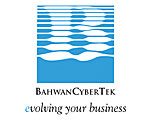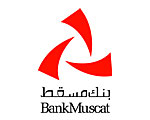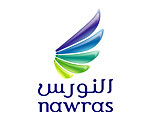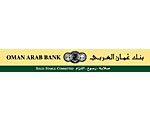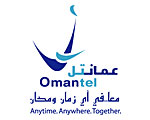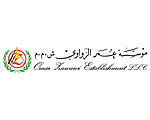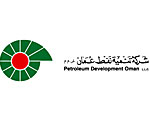Source: Information Technology Technical Secretariat (ITTS)
URL:www.itec.gov.om
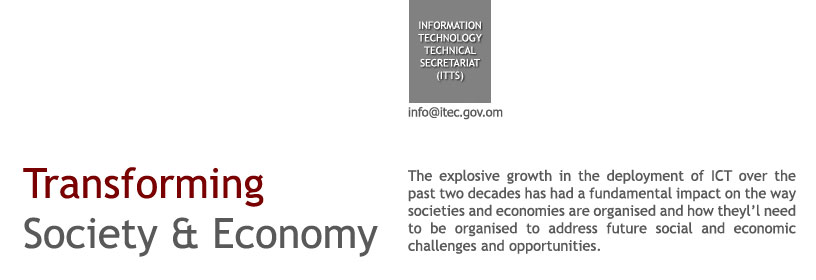
It is widely accepted that ICT plays an increasingly important role in determining the economic health of countries, regions and cities right across the globe. Gartner testifies that there are few cities, regions, states or countries that haven't published some sort of Knowledge Economy plan over the past ten years or so. As we've seen, however, the lofty goals incorporated in such plans are seldom if ever fully achieved. Most are, at best, partially completed, behind time and invariably fall short of what was envisaged. Stakeholders in any national Knowledge Economy project must realise that a unified national strategy is a prerequisite for success. Such a strategy must focus on goals, outcomes and accountabilities and be based on a realistic assessment of both the existing situation and what can be achieved in due course.
ITTS vision
Oman's ITTS has a vision to transform the Sultanate into a Knowledge-based economy and leverage ICT as the main means of providing services to citizens, government and the business community. From passports, trade finance, health to education, government has to provide an infrastructure and regulations for conducting business electronically. In short, ITTS is leading Oman's transformation into a Digital Society and has crafted a unified national strategy that it's currently implementing.
In general, for Oman to leverage ICT for economic growth it has to adhere to a unified integrated approach - an approach that would deliver on the following:
» Minimise the risk of multiple silo-based, stand alone government portals.
» Link and monitor the development and availability of ICT skills required by the Knowledge Economy.
» Encourage the development of local ICT enterprises and attract multinational corporations.
» Ensure government services become more customer-focused.
» Provide an integrated and secure foundation for e-Commerce transactions.
ITTS' Towards Digital Oman strategy is divided into two major components, these are:
1. e-Government: Enabling government services through electronic delivery channels.
2. e-Governance: Establishing regulatory measures, influencing and enhancing education, developing the country's IT sector and addressing the Digital Divide.
With regard to e-Government, ITTS is working on a set of shared, highly-secured infrastructure and services, these are:
» Government Convergent Network
» Government Nervous System
» Government e-Services Gateway (UBAR portal)
» Institutions Data Bank
» People Data Bank (National Registration System)
» e-Payments Infrastructure (EFT, RTGS etc)
» Geographical Information Systems (GIS)
» Electronic Mail Services
On the e-Governance front, the focus is on:
» e-Legislation
» Standards and regulations
» IT Parks to encourage the growth of a domestic ICT industry (e.g. Knowledge Oasis Muscat).
» Encouraging ICT education and research
» De-regulating the telecom sector and taking steps to minimise the Digital Divide
ITTS is fully aware that it's promoting a new style of living and working to the broader Omani community. Said Al Ismaily, Head of ITTS commented: 'our society - and at every level - has to be prepared for the changes that are occurring in today's Digital Age. Moreover, we need to work hard at raising ICT awareness and helping people, government as well as businesses understand the importance and relevance of ICT. Oman's e-Government and e-Governance initiatives need to be marketed in tandem with the Digital Society concept to ensure a healthy and successful transformation to a new and bright knowledge-driven economy.' As the driving force behind the country's digital strategy, ITTS has embarked on a long and exciting journey. Its focus is clear - leverage ICT for economic and social gain to enrich the lives of the Omani people.

